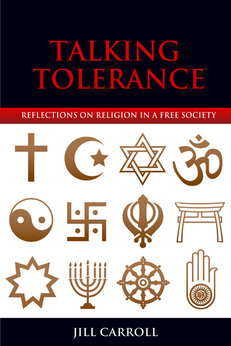Buddhism Basics
Buddhism is a major Asian religion that began in India in the 6th century C.E., spread to China, and then to the rest of the world. It is centered around the teachings of a man named Siddhartha Gautama who came to be known as "the Buddha" after he achieved enlightenment into true reality when he was about 35 years old.
Siddhartha Gautama, or the historical Buddha, was born a Hindu and grew up in Hindu culture. Therefore, Buddhist philosophy contains some basic Hindu ideas, much like Christianity contains some Jewish ideas. Hinduism is its "parent religion."
Buddhism, like any other major world religion, contains different groups within it. The three major groups are: Theravada, Mahayana and Vajrayana.
Theravada means "doctrine of the elders" and is one of the earliest forms of Buddhist religion. It is dominant in Sri Lanka, Burma, Thailand and other parts of southeast Asia. It focuses on the pursuit of nirvana, or extinguishing of unenlightened self and its desires.
Mahayana means "great vehicle" which is a term that arose, to an extent, in opposition to Theravada. Mahayana refers to itself as the "great vehicle" and to Theravada as the "lesser" or "smaller" vehicle, implying that it is a superior path in some respects. Mahayana allows for more involvement of regular lay people in Buddhist practice than does Theravada (which tends to focus on monks and nuns). It also prioritizes the role of the bodhisattva, a person who achieves enlightenment and takes a vow to teach others until all are enlightened.
Vajrayana means "thunderbolt" or "diamond" vehicle and is a form of Buddhism prominent in Tibet and in other areas which feature tantric and shamanistic practices. This form also spread to Mongolia and India.
Other forms of the religion include Zen and Pure Land. Zen begins in China and spreads to Japan and elsewhere. It focuses on specific meditative approaches to the path of enlightenment. Pure Land is prominent in Japan and focuses on the reverence of Buddha Amida, or the Buddha of "boundless light." Pure Land adherents envision being reborn into the "pure land" of this Buddha, which is loosely similar to Christian notions of heaven.
Buddhist philosophy revolves around the central teaching of the Buddha, which is found in the Four Noble Truths. These truths contain basic ideas about the nature of life and our experience as human beings within it. Specifically, the Four Noble Truths offer an explanation for the suffering people experience in life and how to minimize it.
Buddhism is a philosophy as much as it is a religion. Like most religions, it is a set of beliefs about reality, and an approach to daily life rooted in those beliefs. However, it does not involve the worship of a deity or even of the Buddha himself. In its core, it is an "a-theistic" philosophy - meaning "no god."
The central practice of Buddhism, aside from the general ethical prescriptions, is meditation. It is a religion of the mind and, as such, its focus is on enlightening the mind through a range of practices including study and meditation. Ultimately, suffering in life can be minimized or eliminated altogether by strengthening and enlightening the mind.
Click the links below to learn more details about core Buddhist ideas.
Related Pages
How Siddhartha Gautama Became the Buddha
The Four Noble Truths of Buddhism
Impermanence, Interdependence & Emptiness
Do You Have Pictures to Share of Sacred Spaces?
Click here to submit your pics and make your own webpage on this site. It's easy!
Free Video Training for Teachers
Learn the best practices of bringing the world religions into your curriculum and how to deal with religious diversity in your classroom & school.
Click here to get the free training now!
World
Religions
Chart
Check out this handy chart that explains many of the world's religions. This is perfect for students, teachers and anyone who wants basic reference info at their fingertips.
Dr. Carroll's
Latest Book
Available from Amazon in both Kindle and paperback.

